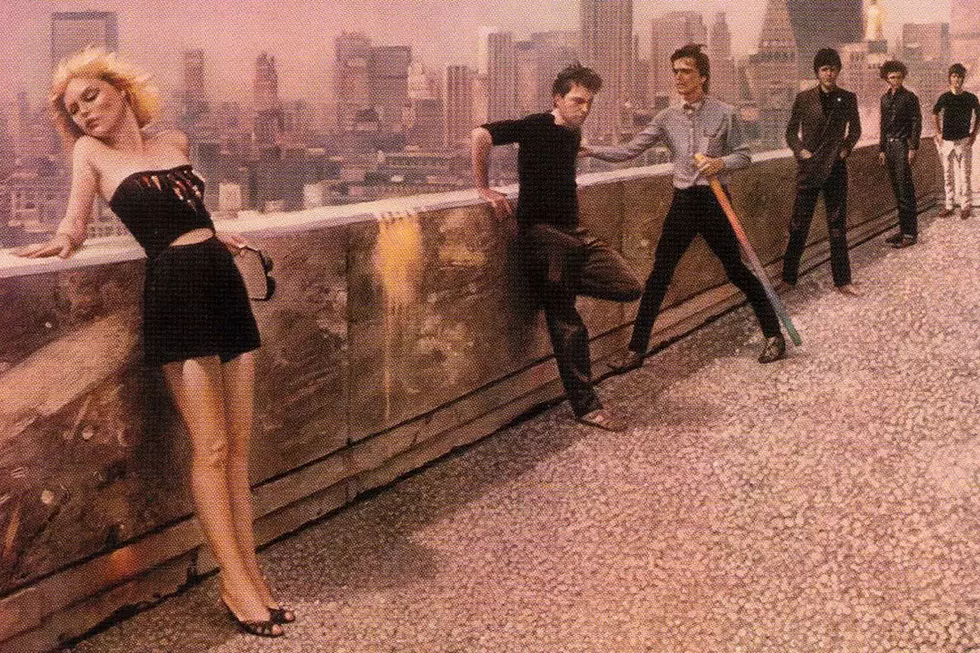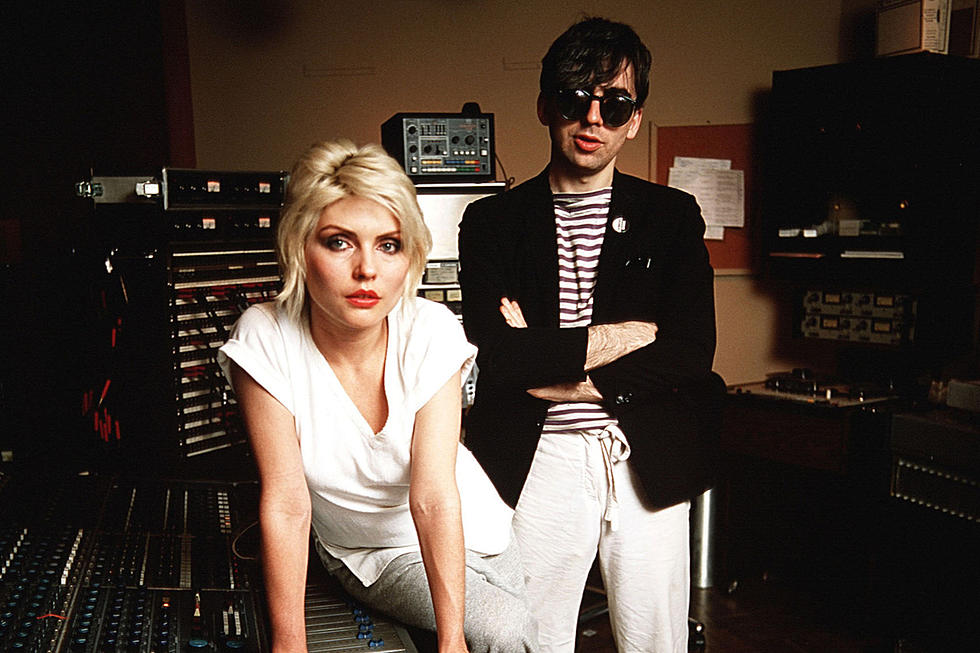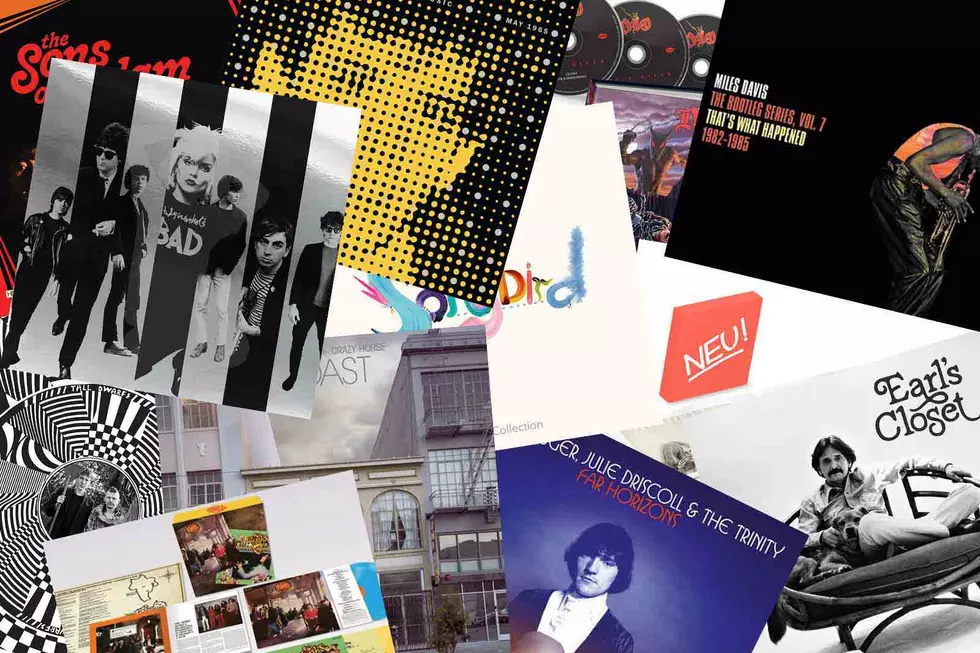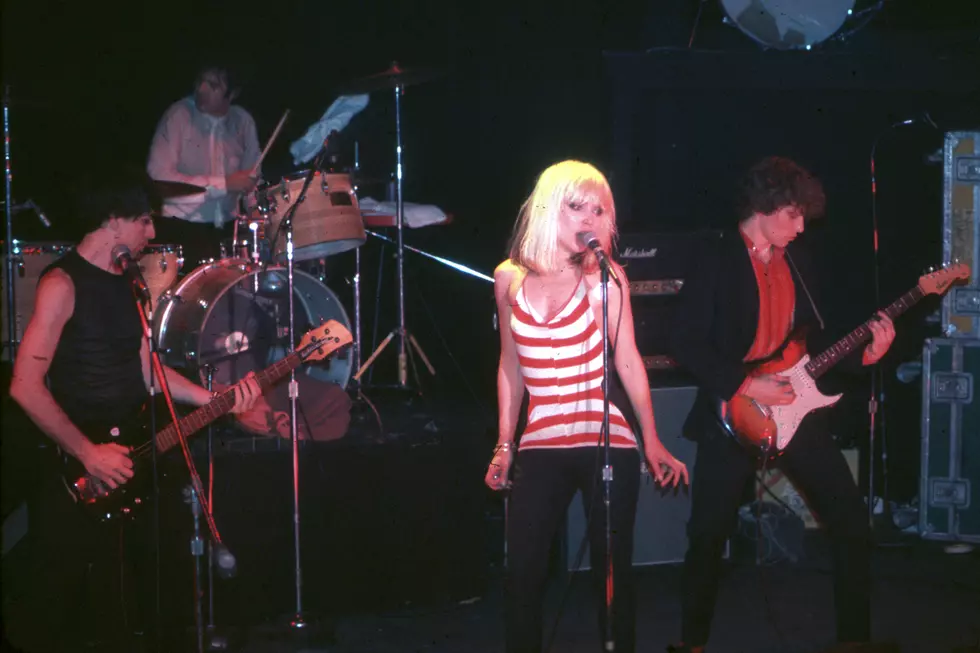
When Blondie Got Adventurous on ‘Autoamerican’
Blondie were an established band by the time they released their fifth album, Autoamerican, on Nov. 29, 1980. However, the New York punk and new wave legends were doing everything but resting on their laurels or relying on precedent.
Autoamerican, which peaked at No. 7 on the Billboard album chart, was a refreshingly diverse collection spanning myriad genres: jazzy cabaret ("Here's Looking at You," "Faces"), moody new wave ("Angels on the Balcony"), mariachi horn-peppered pop ("Go Through It"), glittering disco (the sultry "Live It Up," "Do the Dark") and even orchestral glamour (the opening, mostly instrumental salvo "Europa"). There's even a cover of "Follow Me" from the musical Camelot.
Perhaps Blondie felt so free to experiment because they had once again turned to producer Mike Chapman, the producer of 1978's Parallel Lines and 1979's Eat to the Beat. Or perhaps it was because they were physically in a different place: To record the album, the group and Chapman decamped to United Western Studios in Los Angeles, making it the first time Blondie had left New York to make a record.
Drummer Clem Burke took to the locale: In a fan interview, he called Autoamerican his "favorite Blondie album just because of the whole process that occurred in making it in Los Angeles." Others weren't quite so gung-ho.
Writing in the Blondie Fan Club newsletter, guitarist Chris Stein described feeling somewhat out of his element in California. "Every day we get up, stagger into the blinding sun, drive past a huge Moon-mobile from some ancient sci-fi movie that lies rotting by the side of the road and into L.A. proper," he wrote. "The Strip. The sessions get under way ..."
Watch the Video for 'Rapture'
According to Leslie Bent, the studio engineer for these sessions, recording was a much smoother process. "Mike [Chapman] had these charts for every song," she told Mix in 1999, "breaking them down into different instrumentation and the different parts that had to be done: drums, bass, rhythm guitar, lead vocal, backing vocals, overdubs. Each song had its own section, and as they were completed, he checked them off. They'd done a lot of pre-production, too, and everybody was pretty prepared by the time they got into the studio."
Additionally, Burke notes Blondie "incorporated a lot of outside musicians on the record." Tom Scott, who played soprano saxophone on Wings' "Listen to What the Man Said," added jazzy grooves to the gritty disco-funk No. 1 “Rapture," a song which also took inspiration from New York's nascent rap scene. A cover of the Paragons' reggae single "The Tide Is High" also hit No. 1 on the charts. This song also featured impressive session musicians, Bent recalls.
"The horn section was like the A team of L.A., the guys from the Johnny Carson band. If I remember right, there were six of them and we doubled it. On strings, I think there were at least two violins, two violas and possibly a cello. The percussion was pretty much the last thing we did, because that was more like sweetening-fine-tuning and making it something uncommon or a little more interesting."
Stein takes credit for guiding the band to cover this song: "I was the one who picked 'Tide Is High,'" he told the Village Voice in 2008. "That's the only song I was sure was going to be a hit beforehand. I mean, I knew that if we recorded that song that it would be a hit, but that was because of what we were doing and, you know, what position we were in and because it said "number one" in the chorus and all this stuff, you know."
Listen to "The Tide Is High"
It helps that on this song – and for much of Autoamerican – Harry was in peak vocal form. She wails like a fallen angel on "Rapture" and is playful-but-resigned on "The Tide Is High," while her torchy moments are both animated and emotional without devolving into caricature.
Her theatrical vocal turn on "Follow Me," meanwhile, sounds like it had a massive influence on Madonna, while she reinvents what it means to sound like a pop singer on the girl-group-meets-new-wave "T-Birds": She's at once punk and classical, dragging familiar, traditional styles into the modern world.
Blondie was always known for a relentless commitment to forward motion, but Autoamerican remains a particular fan favorite, an LP beloved for its adventurous spirit and dynamic songwriting.
44 Famous Records You Probably Didn't Realize Were Covers
More From Ultimate Classic Rock









